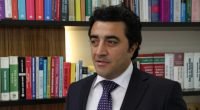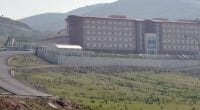Keyword: Hizmet (Gulen) movement

Turkish business suffers under Erdogan’s post-coup Gulen purge
Critics of the ruling AKP expect it to sell Gulen-linked companies to government allies in the business world at a large discount. In mid-October the AKP-linked Metro Holding applied to the TMSF to acquire all of Koza Ipek Holding’s shares. Akin Ipek, the fugitive former owner of the conglomerate, asked on Twitter how Koza Ipek’s $600 million in cash and $20 billion in mining assets could be acquired by a comparatively unimpressive entity. Metro Holding’s capital comes to just over $95 million.

What Is Next In Turkey?
The generals were never the script writers of the coups but only players. The script writers of the coup on July 15 in Turkey aimed to simulate a coup as if it was staged by the Gulen movement. It was simply a false flag. While only a few hundred soldiers were involved in the coup, more than ten thousand officers were purged and arrested. While the police officers challenged the coup plotters, twelve thousand police officers were fired two months after the coup.

Turkish gov’t planning slaughter of jailed Gülen followers in staged riot, lawyer claims
The Turkish government is headed for mass killings of people jailed over alleged or real links to the Gülen movement, in a staged riot in Silivri prison, a lawyer representing a former police chief imprisoned as part of a crackdown against the movement claimed, underlining that he is worried about the lives of his clients.

Gulen Movement And Transparency
The transparency of the Hizmet or Gülen Movement has long been a theme of various critics – writers, intellectuals and politicians. In the context of Turkey where secularism is deployed as a means to control religion rather than to separate it from politics, it is not hard to understand why this theme has been so popular.

Five global challenges: how might Hizmet respond?
Hizmet, the social movement inspired by the neo-Sufi thinker Fetullah Gülen, is currently being dismembered by the autocratic president of Turkey, Recep Tayyip Erdogan. He accuses Gülen of ordering a coup attempt on 15th July 2016, saying it was was led by Hizmet members in the army.

This is beyond a witch-hunt – Turkey now blames Gülen movement for 9/11 attacks
In yet another example of scapegoating the Gülen movement for anything bad in Turkey or in anywhere else in the world, President Recep Tayyip Erdoğan’s chief advisor Yiğit Bulut hinted at connections between FETÖ and the 9/11 terrorist attacks in the US.

As Turkey’s war on Gulen escalates, so does impact on Africa
While critics say that Gülen is at best a cult figure, he is considered by many the legitimate spiritual leader of an Islamic movement that is focused on humanitarian service – hence the common name Hizmet – as well as interfaith dialogue and education.

Return to Turkey or lose citizenship, gov’t tells Gülen followers
The Justice and Development Party (AKP) will revoke the citizenship of followers of the faith-based Gülen movement who sought refuge abroad due to a government crackdown on alleged movement sympathizers if they do not return to Turkey within a certain period of time, the pro-government Sabah daily reported on Thursday.

Twelve questions Turkey’s journalists can’t ask
Erdoğan was born to a relatively poor family in Rize, along the Black Sea. His father was in the coast guard and worked at sea. Erdoğan at one point even sold snacks on the street to make extra cash. He graduated from a religious school in 1973, and immediately embarked on a political career, eventually becoming first mayor of Istanbul. So here’s the question: How did a man like Erdoğan become a billionaire several times over?

Turkey purge victims unable to find jobs, leave country
“It’s a kind of civil death,” Kerem Altiparmak, a human rights lawyer and political science professor at Ankara University told Los Angeles Times on Wednesday when describing how the lives of thousands of people change after the July 15 coup attempt.






















